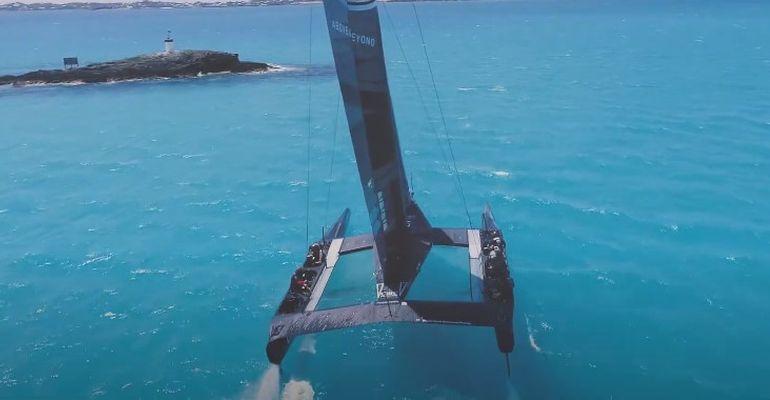The project will see BAR Technologies’ WindWings – large, solid wing sails measuring up to 45 metres in height – fitted to the deck of bulk cargo ships to harness wind power and reduce CO2 emissions by as much as 30%. The number of wing sails can be tailored to the size of the vessel and the route it will take.
BAR Technologies - a spin-off from Ben Ainslie Racing (BAR), the British team formed by Olympic and World Champion sailor Sir Ben Ainslie - was, formed in 2016 making the design knowledge and technical skills developed for America’s Cup yacht racing.
“Through this partnership we will bring bespoke wind solutions to customers who are actively seeking to reduce CO2 emissions from their supply chain,” said Jan Dieleman, president of Cargill’s Ocean Transportation business.
“Changing regulations and uncertainty about future greener marine fuels makes choosing the right vessel to charter with a long-term view complicated. With the WindWings technology, Cargill will be able to offer customers a solution that improves vessel efficiency, independent of the fuel or type of engine used,” he continued.
The project is currently in the design phase, bringing together a team of companies to deliver the first vessels – expected on the water by 2022.
John Cooper, ceo of BAR Technologies, commented: “Wind is a near marginal cost free fuel and the opportunity for reducing emissions, alongside significant efficiency gains in vessel operating costs, is substantial. We’ve invested in our unique wind sail technology to provide vessel owners and operators with an opportunity to realize these efficiencies.”
The shipping industry is staring at a challenge to reduce the average CO2 emissions by 40% by 2030 and working towards 70% by 2050, compared with 2008 levels, under IMO regulation.
Cargill said it recognises itself as one of the industry’s largest players, chartering a fleet of more than 600 vessels at one time, thereby carrying the responsibility to help in the decarbonisation process.
Cargill has partnered with a number of industry organisations to drive decarbonisation, including the Global Maritime Forum and its Getting to Zero Coalition, the Sea Cargo Charter, a recent initiative to cut and track emissions from chartered ships and the Maersk McKinney Moller Center for Zero Carbon Shipping.
Copyright © 2024. All rights reserved. Seatrade, a trading name of Informa Markets (UK) Limited.
Add Seatrade Maritime News to your Google News feed.  |

